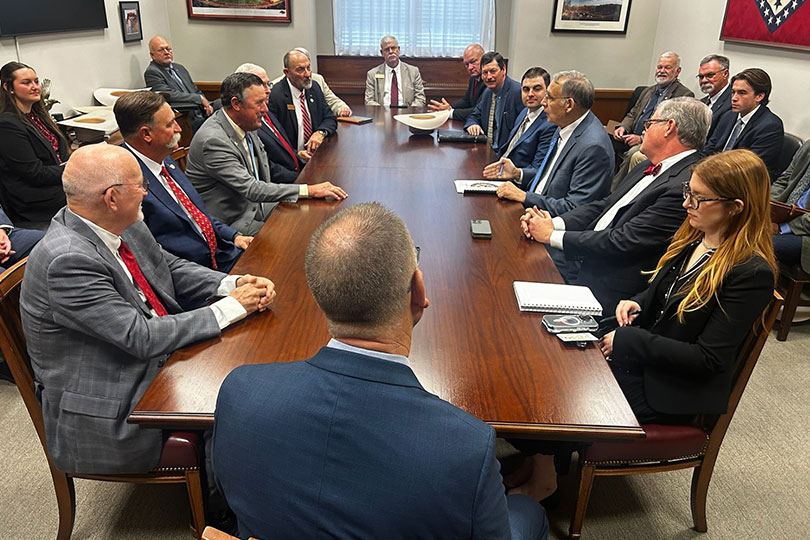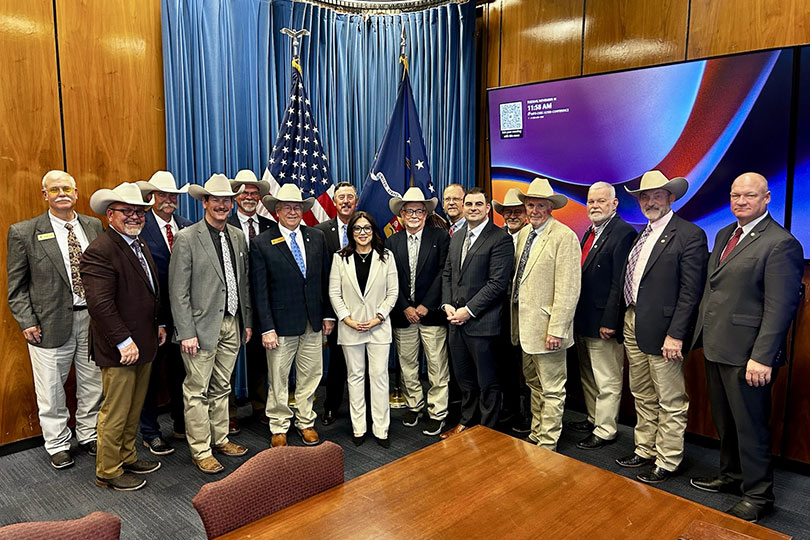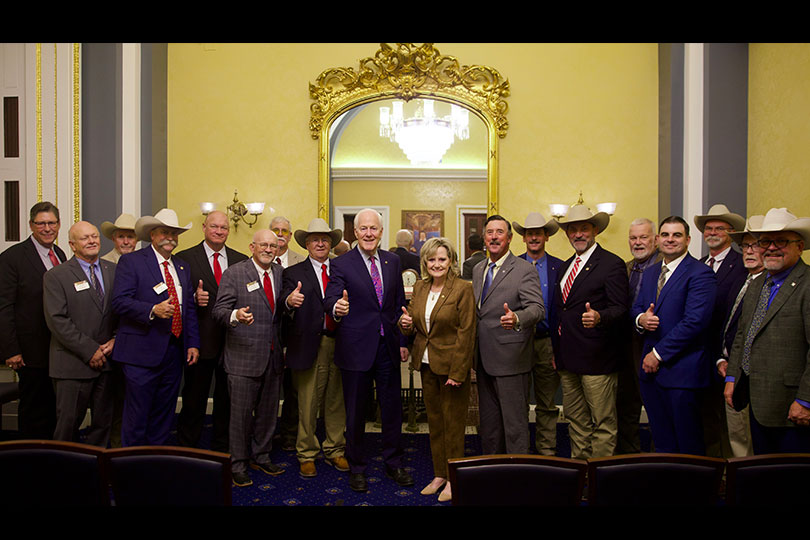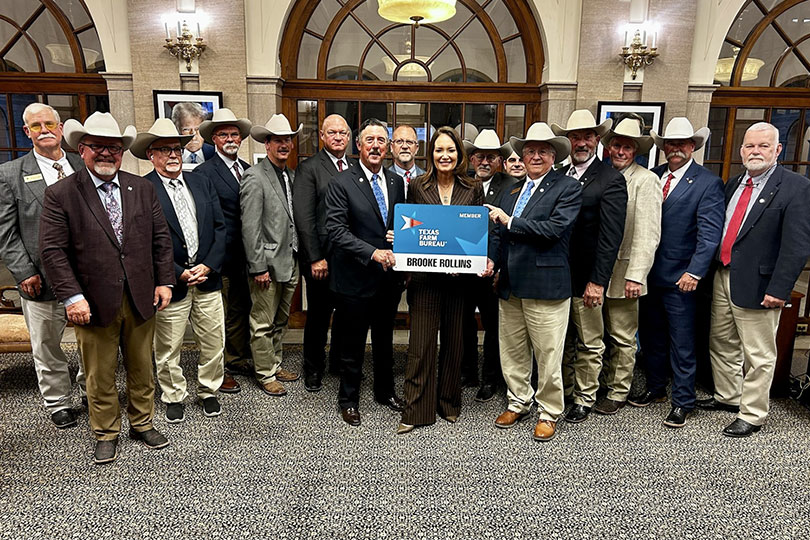By Julie Tomascik
Editor
Concerns over trade uncertainty, a worsening farm economy and the threat of the New World screwworm dominated discussions in Washington, D.C., this week as Texas Farm Bureau (TFB) leaders met with Congress and federal agencies to address the challenges facing agriculture.
“We had two solid days of meetings with Congress and cabinet members,” TFB President Russell Boening said. “It was very timely to be here and discuss issues impacting Texas agriculture.”
TFB state directors and county leaders met with Congressional lawmakers from Texas and other states, as well as U.S. Secretary of Agriculture Brooke Rollins and Department of Labor Secretary Lori Chavez-DeRemer.
Economic downturn
Farmers continue to face ever-increasing input costs with near record-low crop prices.
Farm Bureau economists noted that row crops could bring in the lowest cash receipts since 2007, and fertilizer costs are 37% higher and labor costs are 50% than just five years ago.
And farm debt continues to climb, topping nearly $560 billion nationally.
The One Big Beautiful Bill Act, which President Donald Trump signed in July, brought much-needed improvements to farm risk management programs, but the benefits of these updates won’t be realized by farmers until late 2026, Boening noted.
“We’re in a different place than the Midwest. They’re finishing up harvest, but southern folks are looking at next year already,” Boening said. “So, the timeliness of a bridge payment would be important.”
The payments, Boening explained, need to be robust enough to provide support to farmers as the government works to solve trade imbalances and stabilize prices.

Trade pressures
Trade was a central theme throughout the trip.
TFB leaders emphasized that Texas farmers want functioning markets and to not have to continue relying on temporary bridge payments. They urged Congress to finalize negotiations that could strengthen export opportunities.
Retaliatory tariffs and prolonged trade disputes have increased fertilizer prices, restricted market access and added volatility to already stressed commodity sectors.
“We appreciate the progress that has been made on trade, but we need deals finalized,” Boening said. “Farmers want to sell what they grow.”
They also encouraged the inclusion of the 1944 Water Treaty within the U.S.–Mexico–Canada Agreement framework to help address ongoing water delivery challenges affecting South Texas.
Guestworker program
Texas farmers and ranchers continue to face a severe shortage of reliable workers, despite offering competitive wages.
The H-2A guestworker program is critical to getting a skilled labor force on farms, but it remains costly, complex and burdened by federal red tape. Texas producers continue to face higher wage rates, complex regulations and steep application costs, including a 137% increase in visa fees and a new $600 asylum fee.
The TFB group discussed those challenges with Department of Labor Secretary Lori Chavez-DeRemer.
County leaders Clint Wiggins and Bruce Frazier offered firsthand insight into the labor demands of growing watermelons and onions.
TFB urged federal leaders to continue improving the program, especially wage stability and expanded eligibility for year-round employers, to ensure farmers have access to a reliable, legal workforce.

New World screwworm response
Recent detections of New World screwworm in northern Mexico have raised concerns about potential reintroduction into Texas, where the pest historically caused devastating livestock losses.
Boening said meetings with U.S. Secretary of Agriculture Brooke Rollins, Undersecretary of USDA Marketing and Regulatory Programs Dudley Hoskins and Admiral Michael Schmoyer provided confidence in the federal response plan. The five-pronged strategy includes sterile fly dispersal from Moore Air Base in the Rio Grande Valley and a new sterile fly dispersal facility in Tampico, Mexico, that will allow aerial releases across northeastern Mexico.
“I can’t say enough about that meeting,” Boening said. “The screwworm issue isn’t going away, but we have a good plan in place.”
Advocating for agriculture
The meetings reinforced the importance of ensuring Congress hears directly from the farmers and ranchers affected by federal decisions.
“When they hear from people who are dealing with these issues right now, it makes an impact,” Boening said. “Everyone came away feeling better about the work being done here in D.C. on behalf of Texas agriculture.”



Leave A Comment